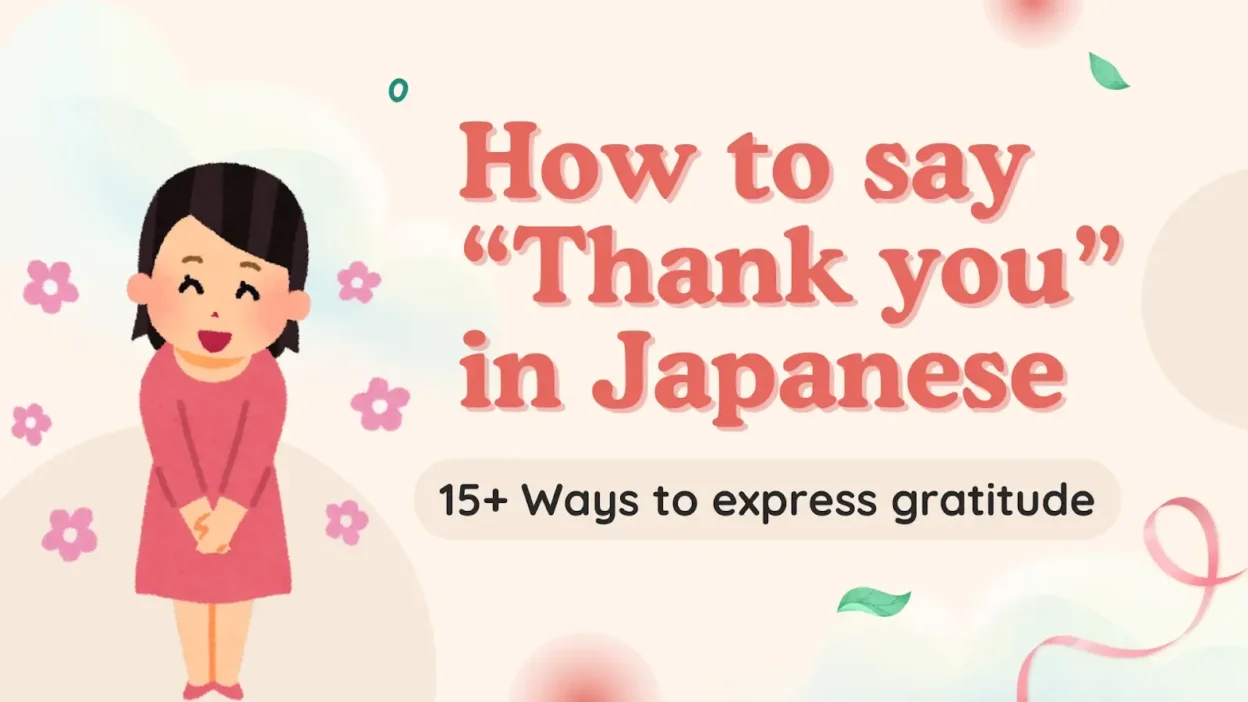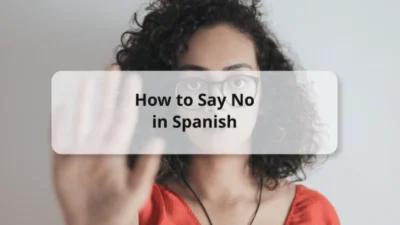Thank you” in Japanese is commonly said as “Arigatou” (ありがとう) in casual situations and “Arigatou gozaimasu” (ありがとうございます) in formal or polite contexts. These phrases are essential for expressing gratitude in everyday Japanese life.
Many users search for how to say thank you in Japanese when learning the language, traveling to Japan, or interacting with Japanese speakers. The user intent is clear: they want simple, accurate, and easy-to-use phrases that show respect and politeness.
In this guide, you will learn the correct ways to say “thank you” in Japanese, when to use each phrase, and pronunciation tips. These beginner-friendly explanations help you express gratitude naturally and confidently.
Say Thank you in Japanese
Let’s explore 15 authentic ways to say thank you in Japanese, complete with examples and the history or social context behind each phrase.
15 Ways to Say Thank You in Japanese (Short Table)
| Phrase | Japanese | Pronunciation | Use |
|---|---|---|---|
| 1. Thank you | ありがとう | Arigatou | Casual |
| 2. Thank you very much | ありがとうございます | Arigatou gozaimasu | Polite |
| 3. Thank you (past) | ありがとうございました | Arigatou gozaimashita | After help is done |
| 4. Thanks a lot | どうもありがとう | Doumo arigatou | Warm casual |
| 5. Very polite thanks | どうもありがとうございます | Doumo arigatou gozaimasu | Very polite |
| 6. Thanks | どうも | Doumo | Very casual |
| 7. I appreciate it | 感謝します | Kansha shimasu | Formal |
| 8. Thanks for everything | いろいろありがとう | Iroiro arigatou | When someone helped a lot |
| 9. Thanks as always | いつもありがとう | Itsumo arigatou | For regular help |
| 10. Thanks for your help | 手伝ってくれてありがとう | Tetsudatte kurete arigatou | When someone helps you |
| 11. Good job / Thanks at work | お疲れ様です | Otsukaresama desu | Workplace |
| 12. Thank you for your kindness | ご親切にありがとうございます | Go-shinsetsu ni arigatou gozaimasu | Very polite |
| 13. Thank you (heartfelt) | 心からありがとう | Kokoro kara arigatou | Emotional |
| 14. Thank you (cute tone) | ありがと〜 | Arigato~ | Friendly/cute |
| 15. Thank you in advance | よろしくお願いします | Yoroshiku onegaishimasu | Before help |
1. ありがとう (Arigatou) – “Thanks”
Origin:
From the words “ari” (to exist) and “gatou” (rare or difficult), originally meaning “it’s rare to exist” — expressing that the help was precious.
Example:
👤 User A: プレゼントをくれてありがとう!(Purezento o kurete arigatou!)
👤 User B: どういたしまして!(Dou itashimashite!)
Thanks for the gift!
You’re welcome!
Use: Casual; used with friends, family, or people close in age.
2. ありがとうございます (Arigatou gozaimasu) – “Thank you (polite)”
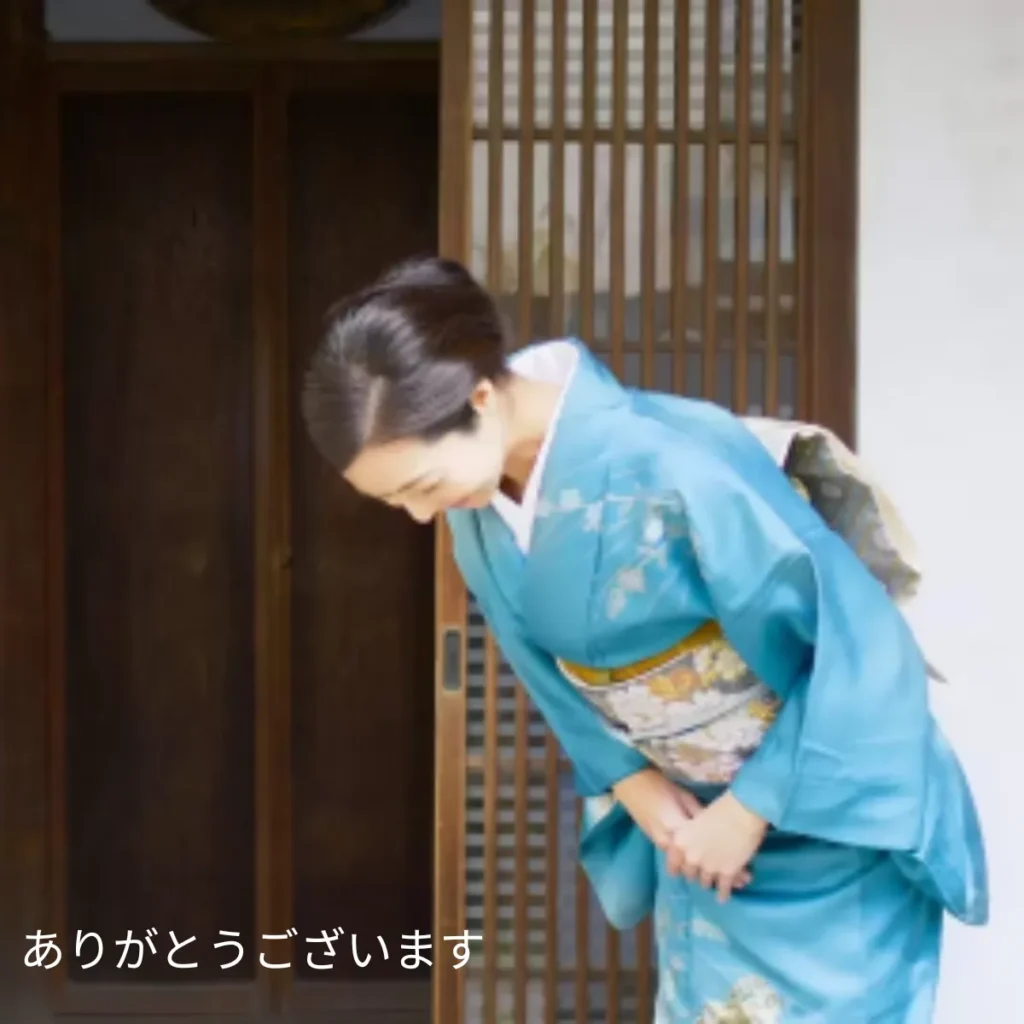
Origin:
Adding “gozaimasu” makes it more respectful. It’s the polite form used in everyday conversation with strangers, colleagues, or elders.
Example:
👤 User A: 本を貸してくれてありがとうございます。
(Hon o kashite kurete arigatou gozaimasu.)
👤 User B: いえいえ、どういたしまして!
Thank you for lending me the book.
No problem at all!
Use: Polite; suitable for work, customer service, or formal situations.
Read Also: How to Say I Love You in Spanish
3. ありがとうございました (Arigatou gozaimashita) – “Thank you (past tense, polite)”
Origin:
Used when the action you’re thanking for has already been completed. The past tense “-mashita” shows respect for a finished act.
Example:
👤 User A: 昨日は助けてくれてありがとうございました。
(Kinou wa tasukete kurete arigatou gozaimashita.)
👤 User B: お役に立ててよかったです。
Thank you for helping me yesterday.
I’m glad I could help.
Use: Polite, respectful, and often used in customer interactions.
4. どうも (Doumo) – “Thanks / Hey / Hello”
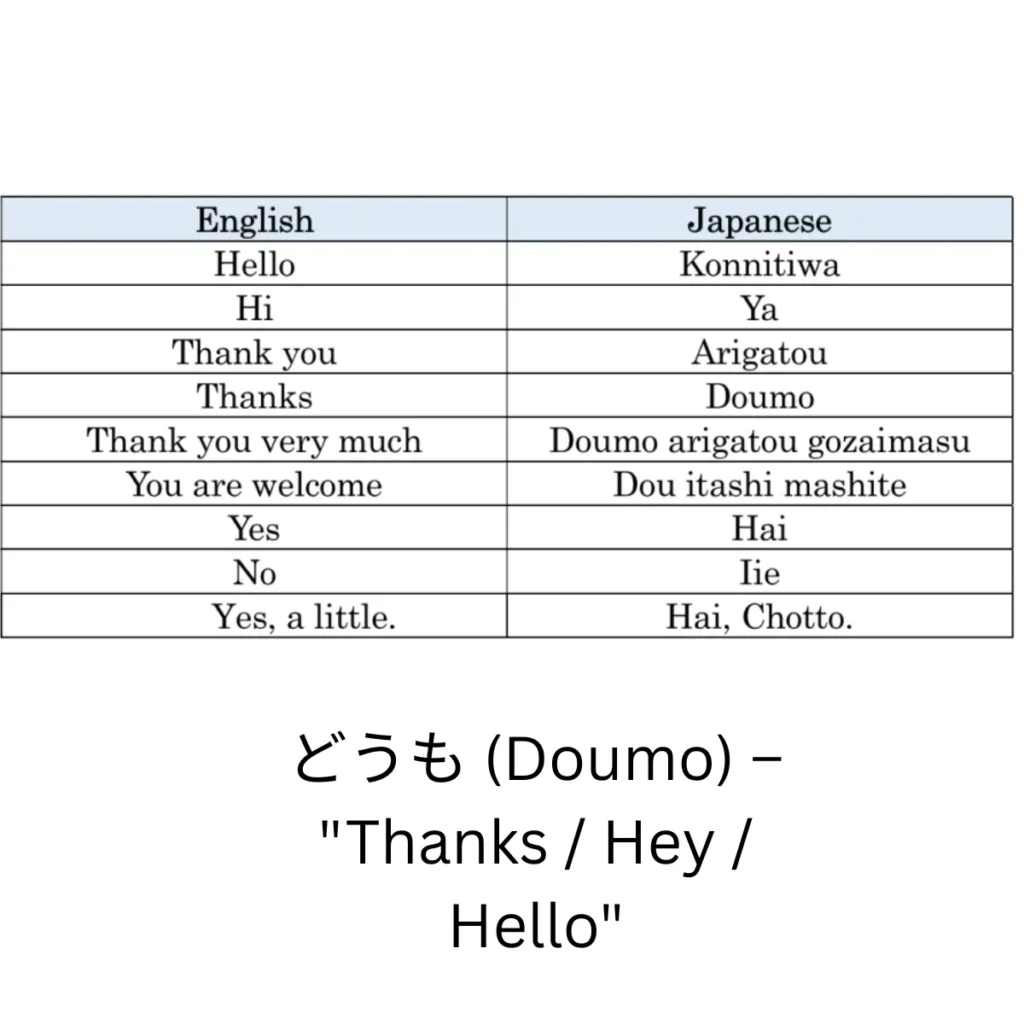
Origin:
An all-purpose word meaning “very” or “much,” often used by itself as a quick and casual “thanks.”
Example:
👤 User A: あ、ドアを開けてくれてどうも!
👤 User B: はいはい!
Oh, thanks for opening the door!
No problem!
Use: Very casual and brief. Common in daily conversation.
Read Also: How to Say Hello in Korean: 15 Polite, and Fun Greetings
5. どうもありがとうございます (Doumo arigatou gozaimasu) – “Thank you very much”
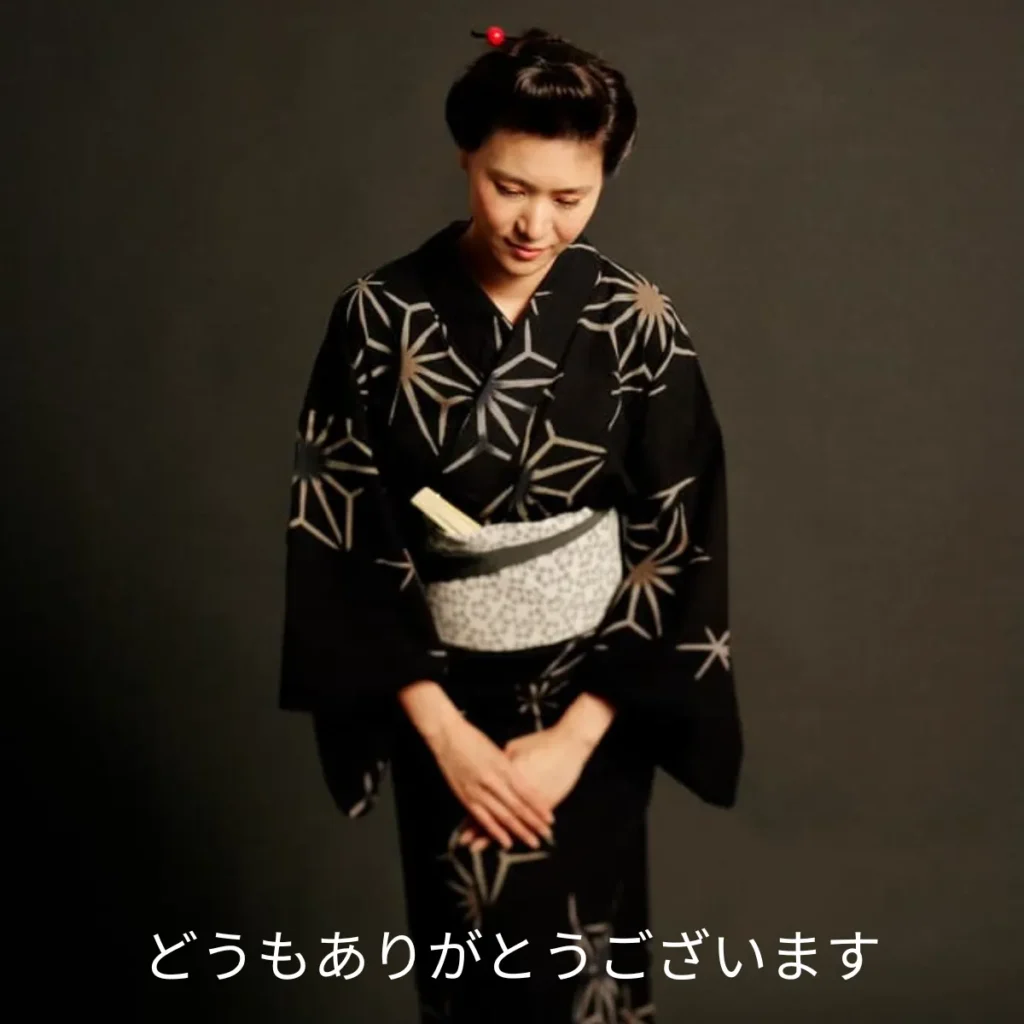
Origin:
Combines the intensifier “doumo” with the full polite form for extra gratitude.
Example:
👤 User A: このプレゼント、すごく嬉しいです。どうもありがとうございます!
👤 User B: 喜んでもらえてよかった!
I’m really happy with this gift. Thank you so much!
I’m glad you like it!
Use: Very polite; when you’re deeply thankful.
6. すみません (Sumimasen) – “Excuse me / I’m sorry / Thank you”
Origin:
Though it means “excuse me” or “sorry,” it’s often used to thank someone for a kind favor or when you feel you imposed on them.
Example:
👤 User A: 手伝ってくれてすみません。
👤 User B: 大丈夫ですよ。
Thanks for helping me (sorry to trouble you).
It’s no trouble at all.
Use: Polite, used in both apologies and appreciation contexts.
Read Also: How to Say I Love You in Japanese: 15 Romantic & Cultural Ways
7. 感謝します (Kansha shimasu) – “I appreciate it”
Origin:
A formal way to express sincere thanks, literally “I give thanks.”
Example:
👤 User A: ご支援に心より感謝します。
👤 User B: 力になれて光栄です。
I deeply appreciate your support.
It’s an honor to be of help.
Use: Very formal, often used in speeches or writing.
8. 心からありがとう (Kokoro kara arigatou) – “Thanks from the heart”
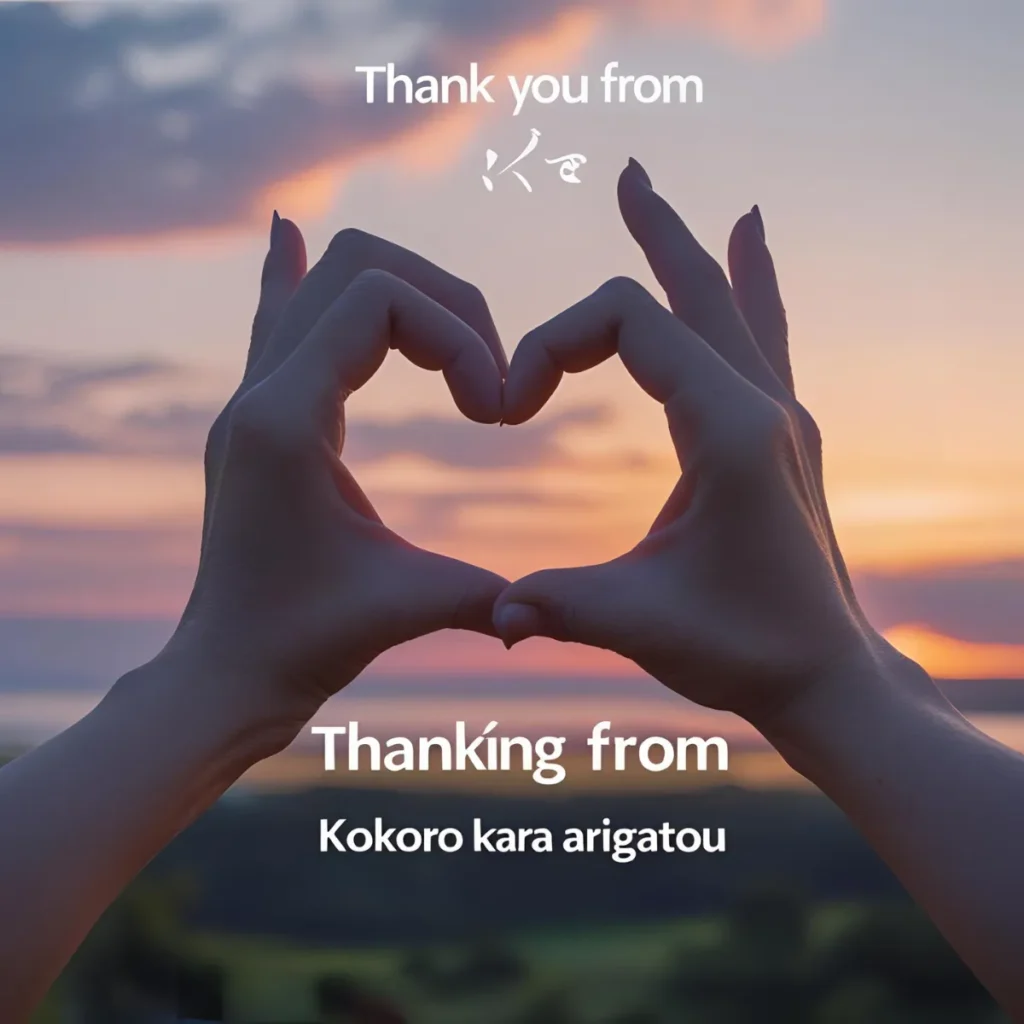
Origin:
A heartfelt expression often used in emotional or serious moments. “Kokoro” means heart.
Example:
👤 User A: 君の支えに心からありがとう。
👤 User B: そんなふうに言ってもらえて嬉しいよ。
Thank you from the bottom of my heart for your support.
I’m really touched by that.
Use: Emotional or personal; informal but powerful.
Read Also: How to Say Hello in Japanese: 15 Culturally Rich Greetings
9. 感謝の気持ちでいっぱいです (Kansha no kimochi de ippai desu) – “I’m filled with gratitude”
Example:
👤 User A: 皆さんのおかげで、感謝の気持ちでいっぱいです。
👤 User B: こちらこそ、ありがとうございます!
Thanks to you all, I’m filled with gratitude.
We’re the ones who should thank you!
Use: Deeply formal, often used in speeches or ceremonies.
10. お礼を申し上げます (Orei o moushiagemasu) – “I offer my thanks”
Origin:
A business-level, honorific way to express thanks in writing or formal speech.
Example:
👤 User A: ご招待いただき、お礼を申し上げます。
👤 User B: ご参加いただき光栄です。
Thank you for the invitation.
We’re honored by your presence.
Use: Ultra-formal, used in letters and professional correspondence.
11. 助かりました (Tasukarimashita) – “That really helped”
Origin:
From the verb “tasukaru” (to be helped or saved), this thanks is used when someone has been a real help.
Example:
👤 User A: 宿題を手伝ってくれて助かりました!
👤 User B: いつでもどうぞ!
Thanks for helping with the homework!
Anytime!
Use: Everyday politeness with some formality.
12. ありがたく思います (Arigataku omoimasu) – “I feel grateful”
Example:
👤 User A: あなたの言葉、ありがたく思います。
👤 User B: そう言ってもらえて嬉しいです。
I’m grateful for your words.
I’m happy to hear that.
Use: Formal, often written or said with sincerity.
13. 感謝いたします (Kansha itashimasu) – “Humbly thank you”
Origin:
Very humble form used in customer service, letters, or public speaking.
Example:
👤 User A: 本日はご来場いただき、誠に感謝いたします。
👤 User B: こちらこそ、貴重なお話をありがとうございました。
We sincerely thank you for attending today.
Thank you for your valuable talk.
Use: Ultra-formal and respectful.
14. どうもすみません (Doumo sumimasen) – “I’m truly sorry (and thank you)”
Example:
👤 User A: 重い荷物を持ってもらって、どうもすみません。
👤 User B: いいえ、お気になさらず。
Thank you (and sorry) for carrying that heavy bag.
Please don’t mention it.
Use: Polite and apologetic gratitude.
15. 毎度ありがとうございます (Maido arigatou gozaimasu) – “Thank you for your continued business”
Origin:
Used by shopkeepers or service providers in Japan to thank repeat customers.
Example:
👤 Shopkeeper: 毎度ありがとうございます!
👤 Customer: こちらこそ、また来ますね。
Thank you for always shopping with us!
Thanks! I’ll be back soon.
Use: Business setting, customer service.
FAQs:
1. What is the basic word for “thank you” in Japanese?
The basic word is “ありがとう” (Arigatou).
2. How do you say “thank you very much” in Japanese?
You say “ありがとうございます” (Arigatou gozaimasu) — it’s more polite.
3. When should I use “arigatou” vs. “arigatou gozaimasu”?
Use “arigatou” with friends and family.
Use “arigatou gozaimasu” in formal or polite situations.
4. How do you say “thanks a lot” in Japanese?
You can say “どうもありがとう” (Doumo arigatou).
5. How do I say “thank you” casually to friends?
Just say “ありがとう!” with a friendly tone.
6. What is the most polite form of “thank you”?
“ありがとうございます” (Arigatou gozaimasu) is standard polite.
For extra polite, you can say “ありがとうございました” (Arigatou gozaimashita).
7. How do you say “thank you for everything” in Japanese?
Say “いろいろありがとう” (Iroiro arigatou).
8. Do Japanese people bow when saying thank you?
Yes, often. A small bow shows respect and good manners.
9. Is tone important when saying thank you in Japanese?
Yes — warm tone = friendly, soft tone = polite.
10. Can I just say “doumo” to mean thank you?
Yes, “どうも” (Doumo) can mean thanks, but it’s very casual.
Conclusion:
Now that you’ve learned how to say thank you in Japanese, you’re better prepared to express gratitude in a culturally respectful way.If you’re thanking a friend, a teacher, or a shopkeeper, using the right phrase shows thoughtfulness and appreciation.
Keep practicing these expressions, and you’ll sound more natural and polite in every conversation. 🙇♂️✨
Small words of thanks can leave a lasting impression in Japanese culture.
